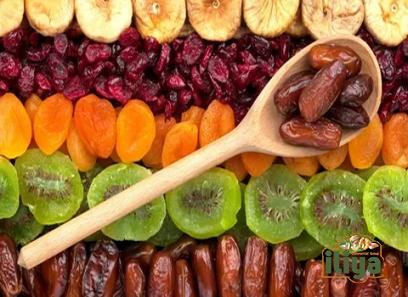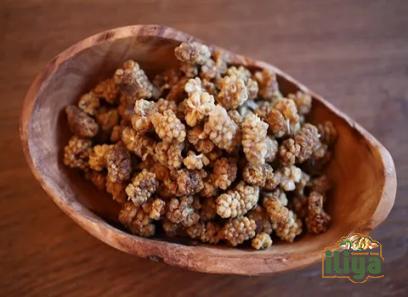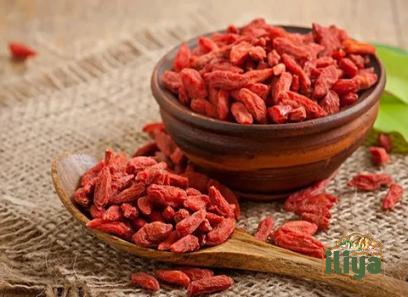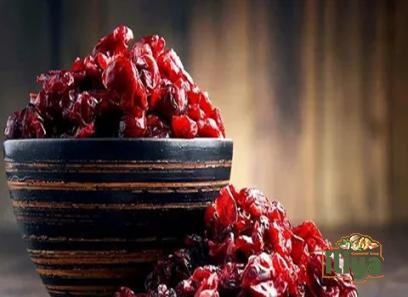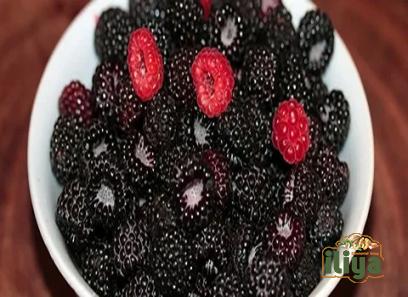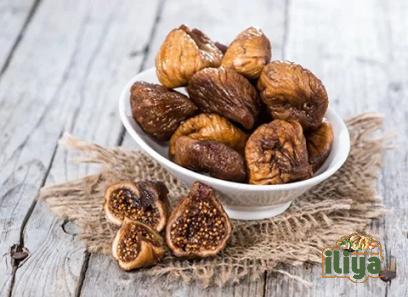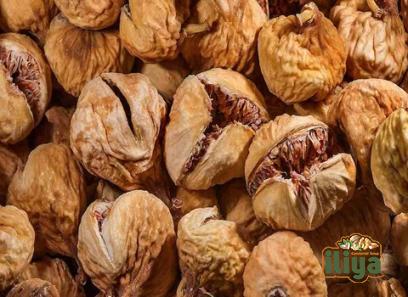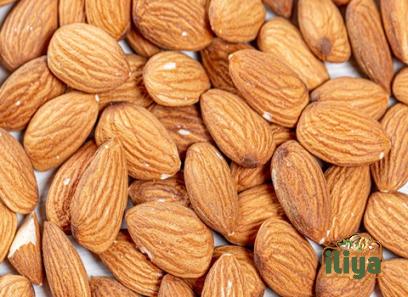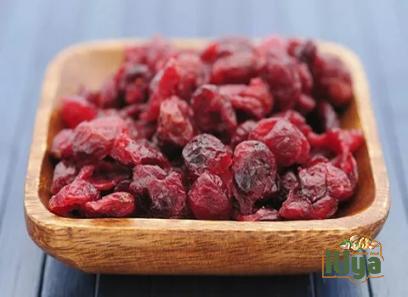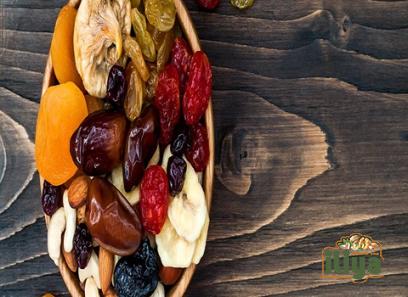When we think of sunflower seeds, we think of birdseed and ignore the fact that many people buy the inconspicuous seeds in the form of muesli or bread in the morning, by the ton.
The fact that they have a strong flavor are two good reasons to go for tender seeds.
In addition to unsaturated fatty acids, it contains many useful minerals, B vitamins and vitamin E, which are important for protecting cells. 100 grams of sunflower seeds have as much protein as schnitzel and provide the daily zinc requirement for many metabolic processes and immune system function.
People who are prone to migraines will find the natural counterpart of small gray seeds, because they work with a high content of magnesium. Current research shows that they can cause episodes of pain.
However, not only for our health but also for our appearance, sunflower seeds provide many nutrients that make us beautiful and young from within. Biotin supports the skin regeneration process. Antioxidant vitamin E slows the aging process and fights inflammation.

Note: In this article, we will show you the best products for beautiful and healthy skin from the inside out. The many positive properties and uses of sunflower seeds have also made them an ideal alternative to almonds.
Kitchen Uses Sunflower seeds have a subtle nutty flavor that makes them a great addition to many dishes, a healthy addition to cookies, pancakes and waffles. . Pasta lovers can use local seeds instead of expensive pine nuts to prepare pesto.
It is also a great addition to various salads as a healthy source of protein. Herbal Sunflower Seed Spray Pureed sunflower seeds give them a creamy texture, making them an ideal base for herbal sprays.
Anyone who loves sunflower seed muesli snacks and is looking for a healthy alternative will love this easy muesli cookie recipe.
You only need a few ingredients: 250g shelled sunflower seeds 125g chopped almonds or hazelnuts 2 tbsp rolled oats 125g brown sugar 1 egg or egg substitute any grated coconut Chocolate chips, vanilla pod or Cocoa powder to your liking
Sunflower seeds, peeled
In summer they delight us with their yellow and sometimes red-brown flowers, and in autumn they supplement our diet with precious sunflower seeds.

Sunflower seeds impress not only with their mild nutty flavor, but also with their versatility. Sunflower seeds have long been used as a muesli, snack or seasoning for baked goods. It is now available in all stores. It is sold year-round, not seasonal.
The origin of sunflower seeds
Sunflower seeds are harvested from sunflower flowers, which are botanically called sunflowers. This name is because this plant always blooms towards the sun.
Native to North and South America. It was cultivated there for its edible seeds around 1000 BC. Around 1530, Spanish sailors brought the flowers to Europe along with the seeds. Today, most sunflowers grow north of the Black Sea, but they can grow anywhere with a temperate climate.
Sunflower blooms from late June to October. Don’t miss the yellow ray florets and the brown tubular flowers with an inner diameter of about 30 cm.
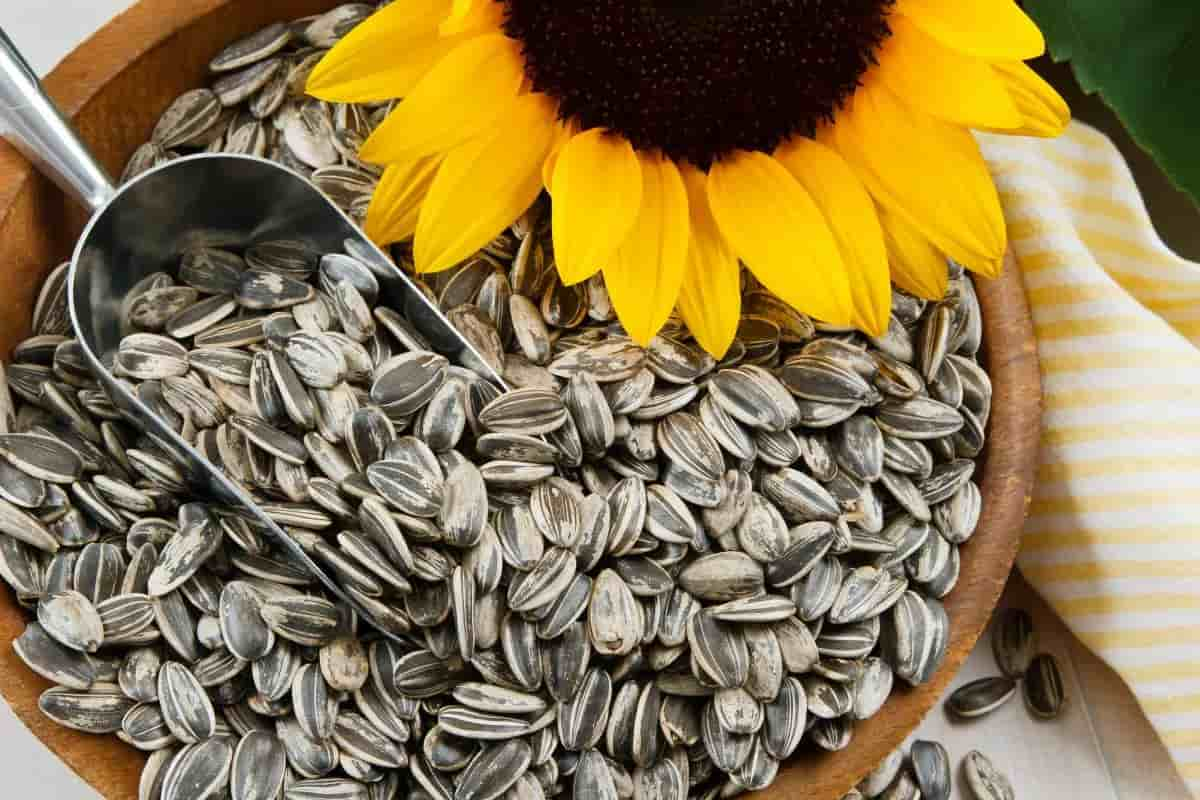
Sonnen Blumenfeld
A lot of water is needed for the plant to grow and reach a height of 3 meters. In addition, the soil should be rich in nitrogen.
Sunflower seeds are harvested in September. The ideal time is when the small yellow flowers have fallen from the seeds. An approximately 2 cm core is surrounded by a fibrous sheath. This protects the seed sprouts. If the shell is removed, the seeds can no longer germinate.
Sunflower seeds
Calories and ingredients in sunflower seeds
Available all year round, it pleases not only those who like the good taste of seeds, but also those who pay attention to a balanced diet. Sunflower seeds, which have a very high percentage of vegetable protein and are rich in unsaturated fatty acids, contribute significantly to this.
Sunflower seeds contain a good balance of nutrients, so even though they are high in calories, they are considered a valuable ingredient. 100 grams of sunflower seeds have about 590 calories.
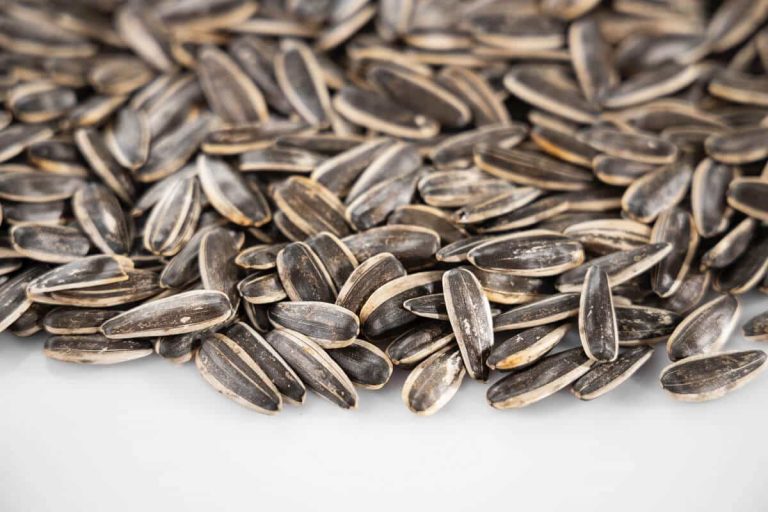
It should be mentioned the excellent content of folic acid. With 100 micrograms of folic acid per 100 grams of sunflower seeds, they are leaders in this field. The need for folic acid is especially high at this time, which makes it a favorable condition for its consumption during pregnancy and breastfeeding.
However, sunflowers grow well outside of this season. Half of that fat is bound as oil. 90% of this fat consists of unsaturated fatty acids such as omega-6 and omega-3. Protein makes up 25% of sunflower seeds, making them an excellent source of plant protein.
Sunflower seeds are 20% carbohydrates, 5% remaining fiber, vitamins A, B1, B2, B6 and trace elements magnesium and calcium. Vitamin A supports vision, B vitamins contribute to normal energy metabolism, and the high magnesium content can help maintain muscle and nerve health and reduce the risk of muscle pain.
Calcium provides the stability and strength of teeth and bones, is important in the transmission of nerve cell impulses, and plays a role in blood clotting.

